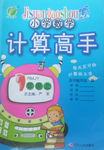题目内容
Future agriculture should depend on high technology __________ traditional methods.
- A.as good as
- B.as far as
- C.as well as
- D.as long as
C
as good as和……一样好;as far as就……而言;as well as不但……而且;as long as只要。句意:未来农业不但要依靠传统方法而且要依靠高科技。所以选C。
as good as和……一样好;as far as就……而言;as well as不但……而且;as long as只要。句意:未来农业不但要依靠传统方法而且要依靠高科技。所以选C。

练习册系列答案
 智能训练练测考系列答案
智能训练练测考系列答案 计算高手系列答案
计算高手系列答案
相关题目